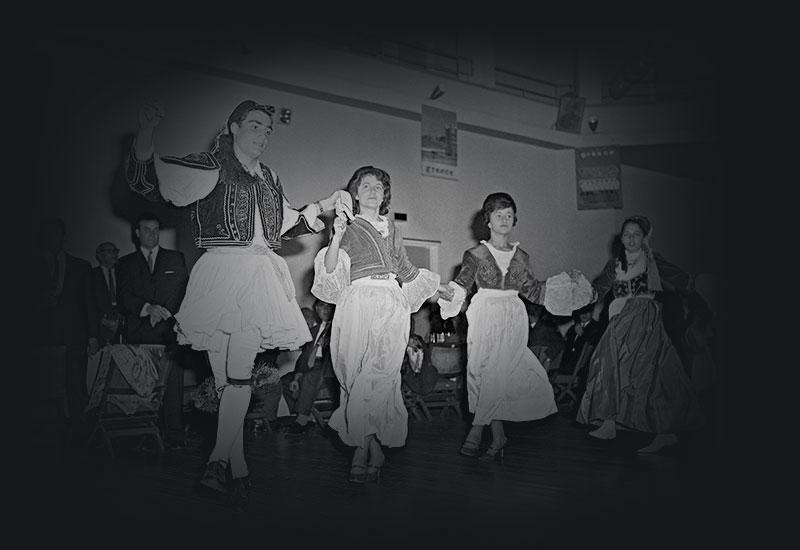Erfan Daliri: Growing up in Townsville it was a very clear-cut difference between the everyday culture and the home culture. And given that I'd never been to the country of my heritage, Iran, it was a bit difficult for me to work out who I was and what I was. Because I didn't very much feel the Iranian ... I didn't have much of a connection to India apart from the fact that I was born there and lived there for 12 months, and I didn't really fit in in Australia either.
So yeah it was definitely difficult trying to work out your own identity when you've got these 2, you know, opposite cultures or different cultures and you don't – you're not accepted in one and you don't really have any memory or connection to the other.
Seraphin Nyirenda: The culture first is a big challenge in Australia because it looks like Australia doesn't have a culture. Because, one of what I discovered in Australia is people used to swear too much and they call it 'Australian culture'. Why is nothing wrong? We can't have a negative culture to be introduced as a positive culture in a culture. It doesn't make sense to me if I can start to swearing in front of my kids.
Sofia Kallos: When I arrived in Melbourne, a lot of things happening. Too many people, you know. A lot of migration there and people are ... busy, busy, busy, busy. As we were walking I saw 2 couples sitting in this particular chair kissing each other and I thought 'Oh ... that's a little bit free, isn't it?' That was the impression that I got. ‘Oh’, I said 'They shouldn't be doing that, you know, in the open kissing each other.' That's the first impression that I had.
Joseph Assaf: I arrived in Australia in 1967 – on the 24th of October 1967.
The first port in Australia was Darwin. And I was a little bit shocked, surprised. The first time I saw people wearing shorts, but there was a tie. And ... you know, I never saw that before. I couldn't understand why, but then I learned after that you know it was customary in Australia to wear in the summer a pair of shorts and put a shirt with a tie on.
Noonee Doronila: We had to find out where we could get certain food. And then some of the ingredients we weren't able to get it yet. There are Filipino ingredients, like certain, um ... sort of fish sauce, a fish sauce that you would use for particular cooking, you know, they didn't have it then. So you just had to revise things quite a lot.
My first husband he, he's Australian background and it's very interesting that I myself, I didn't feel like I wanted to get married to someone with a Filipino background. And that's very telling for me, because it means probably, most likely, that I have moved in my sense of who I am. Understanding nuances and cultures, that I felt that I could move from one culture to another.
Erfan Daliri: Life in Townsville was a bit difficult because there was only I think 2 other Iranian families at the time. This was the mid to late 80s so there wasn't very many non-Anglo-Saxon Australians living in Townsville so we very much stood out.
I remember my first day at school actually. I arrived to class and took my shoes off at the front door and walked in and my teacher asked me where my shoes are and I couldn't speak English so I couldn't explain to her that I'd taken my shoes off at the door because that's what you do as an Iranian. So she got a little bit worked up and took me by the hand and came to walk me to the principal's office when she realised that my shoes were just at the front door. So things like that came up in the first few years.
You know when you're 5, 6, 7 years old you don't understand what a culture is much less cultural difference so they just thought I was weird.
Teasing was pretty standard. Name-calling was pretty obvious even the teachers would at times partake in it. So it was systemic, it wasn't something that it would just happen and someone would take care of it. It was ... it was everywhere.
Sofia Kallos: The Greek community was getting together because we all lived in a suburb sort of close to each other. Because of the language and the customs and all that.
We used to have barbecues down at the park. Lots of people there. You get mixed with other people too, easily.
Joseph Assaf: I married to an Australian-born Italian. Of course my children are born here. They are Australian from Italian, Lebanese background. My son, one of them married an American. So really, our household is a multicultural life.
Seraphin Nyirenda: I'm a father with a big family of 8 children. I'm living here in Australia with my young brother and he's got his family, and my cousin. So at least we have a family here. We have a family. We always meet every day whenever we need to meet. We don't book an appointment to meet, it's not like Australian way. [laugh] We don't book appointment.
I pop into my young brother house, to my big brother house, this kind of stuff. As African, especially, they always like togetherness, we always be together. We can't do things as ... as someone who doesn't have someone to support. But we always support each other in everything and that's very, very positive.

